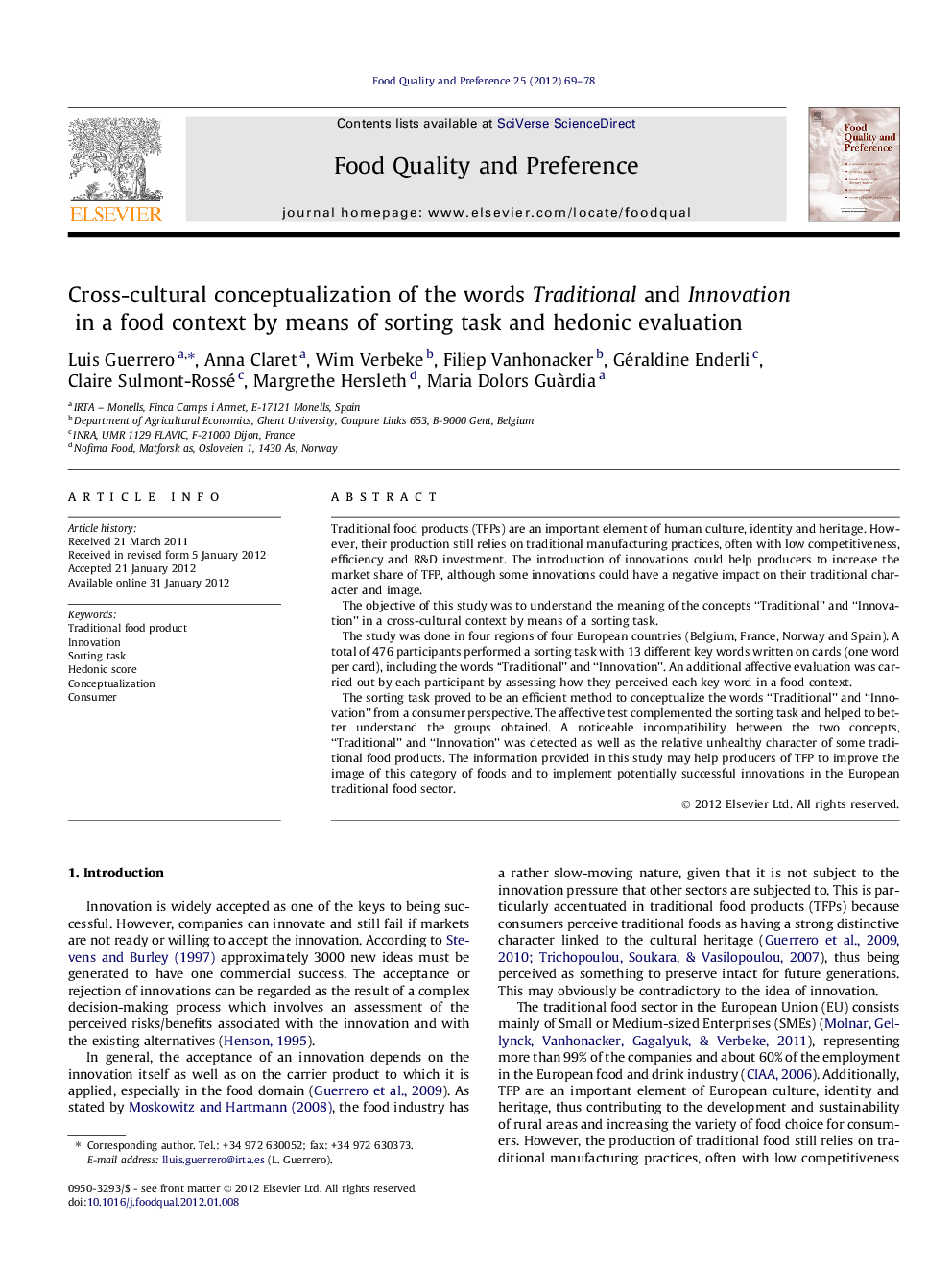| Article ID | Journal | Published Year | Pages | File Type |
|---|---|---|---|---|
| 4317604 | Food Quality and Preference | 2012 | 10 Pages |
Traditional food products (TFPs) are an important element of human culture, identity and heritage. However, their production still relies on traditional manufacturing practices, often with low competitiveness, efficiency and R&D investment. The introduction of innovations could help producers to increase the market share of TFP, although some innovations could have a negative impact on their traditional character and image.The objective of this study was to understand the meaning of the concepts “Traditional” and “Innovation” in a cross-cultural context by means of a sorting task.The study was done in four regions of four European countries (Belgium, France, Norway and Spain). A total of 476 participants performed a sorting task with 13 different key words written on cards (one word per card), including the words “Traditional” and “Innovation”. An additional affective evaluation was carried out by each participant by assessing how they perceived each key word in a food context.The sorting task proved to be an efficient method to conceptualize the words “Traditional” and “Innovation” from a consumer perspective. The affective test complemented the sorting task and helped to better understand the groups obtained. A noticeable incompatibility between the two concepts, “Traditional” and “Innovation” was detected as well as the relative unhealthy character of some traditional food products. The information provided in this study may help producers of TFP to improve the image of this category of foods and to implement potentially successful innovations in the European traditional food sector.
► Certain incompatibility between traditional and innovative foods was detected. ► In some cases, traditional foods were perceived as having an unhealthy character. ► The general image of the concept “Traditional” could be improved notably. ► Affective scores complemented the sorting task and enhanced its interpretation.
